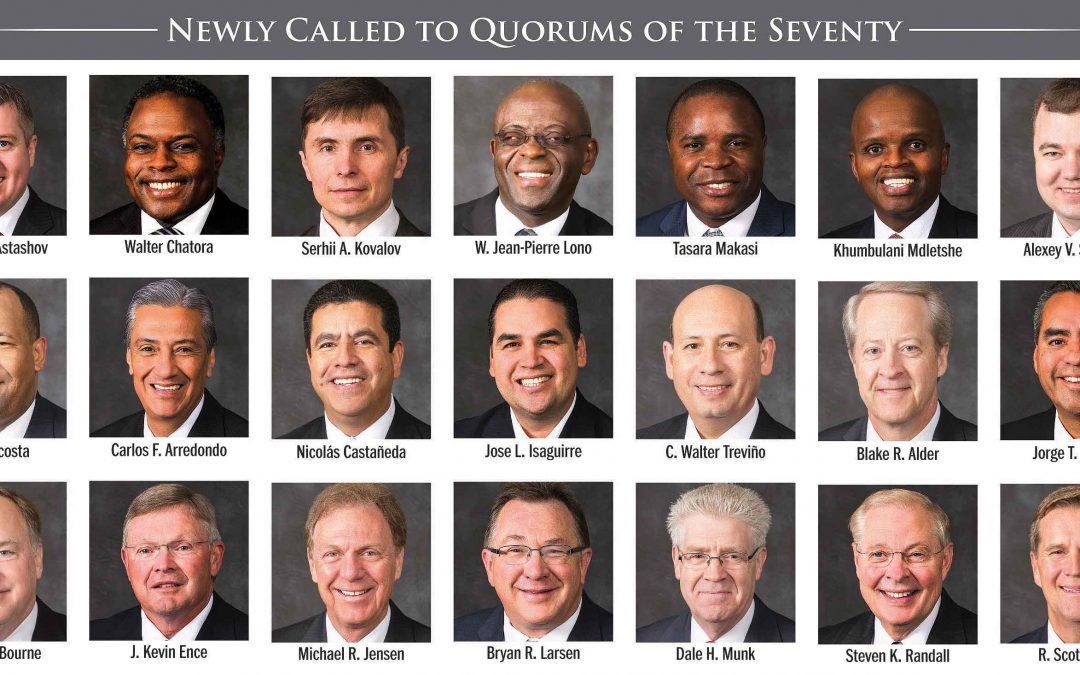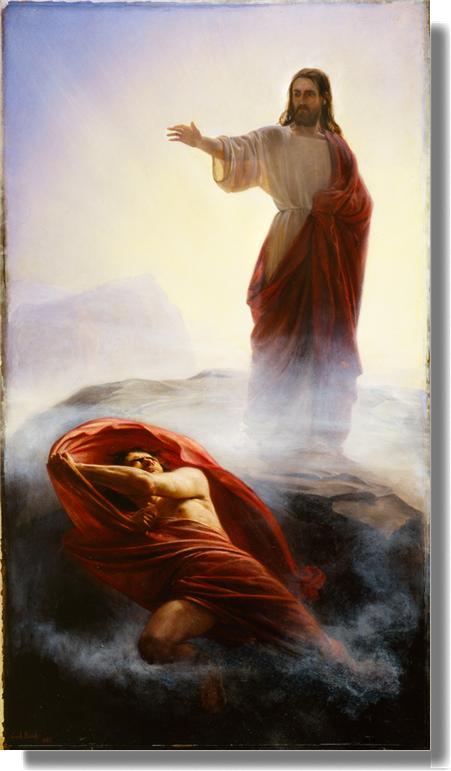Question
Dear Gramps,
Can you explain the Seventies in the priesthood.
Peter
Answer
Dear Peter,
The Seventies are an integral part of the Melchizedek Priesthood, and have been from the earliest times. When the Savior organized his Church, he called both Apostles and Seventies to direct and carry out the work.
After these things the Lord appointed other seventy also, and sent them two and two before his face into every city and place, whither he himself would come. (Luke 10:1)
The particular calling of a Seventy is to assist the Twelve Apostles in their ministry as traveling ministers–.
It is the duty of the traveling high council (Apostles) to call upon the Seventy, when they need assistance, to fill the several calls for preaching and administering the gospel, instead of any others (D&C 107:38).
And these seventy are to be traveling ministers, unto the Gentiles first and also unto the Jews (D&C 107:97).
The Seventy are also called to preach the gospel, and to be especial witnesses unto the Gentiles and in all the world–thus differing from other officers in the church in the duties of their calling (D&C 107:25).
When the Church and Kingdom of God was restored to the earth through the instrumentality of the Prophet Joseph Smith all of the offices and functions of the holy priesthood given to men by the Savior during his mortal ministry were restored as integral parts of the Church. First, both the Aaronic and Melchizedek Priesthoods were restored to Joseph Smith and Oliver Cowdery in May and June of 1829. With this authority, after the organization of the Mormon Church on April 6, 1830 the prophet called twelve Apostles to the work, and then called and organized the Seventy.
James B. Allen and Glen M. Leonard, in their book, The Story of the Latter-day Saints, 2nd ed., rev. and enl., p.91, record the organization of the Seventy as follows:
The office of seventy was introduced into the Church by Joseph Smith about two weeks after the organization of the Twelve. Unlike other priesthood groups, this body was given seven presidents to preside over each quorum, and a First Council of seven presidents was to lead all the seventies. The seventies were to be missionaries; and the president of the Seventy, and eventually the First Quorum of the Seventy, were to become General Authorities of the Church. The revelation that delineated their duties indicated they were to form a quorum equal in authority to that of the Twelve Apostles, but it also said that they were to act under the direction of the Twelve in preaching and administering the gospel. The phrase “equal in authority” has been interpreted to apply only if something should happen to the entire First Presidency and the Twelve: the president of the Seventy was next in line to assume leadership.
After the death of the Prophet Joseph the number of Seventies were increased rapidly. Initially 10 quorums were organized, but by January 1846 at least thirty quorums were functioning–holding quorum meetings, participating in missionary work, and assisting in local assignments. Such Seventies Quorums, acting under the Authority of the Twelve Apostles, continued functioning until in the 1880s, at which time they became Stake entities. Stake Seventies Quorums existed until they were discontinued By President Spencer W. Kimball in 1986. Ordained Seventies in the Stakes at that time were instructed to meet with either the Elders or the High Priests, depending on their ages.
In 1976 the First Quorum of Seventy, as general authorities of the Church, was again constituted. Later, as the work demanded, a second quorum os Seventy was organized.
In April of 1995, from among the Regional Representatives, Area Authorities were organized to preside over the various designated Areas of the Church, Then, in May 1997 the Area Authorities were organized into quorums of Seventy, constituting the third, forth and fifth quorums of Seventy. The first two quorums of Seventy are General Authorities of the Church, and members of the third, fourth and fifth quorums are not General Authorities, but are Area Authority Seventies, generally serving in the areas in which they live. Thus the leadership of the Church is expanded to meet the needs of its ever growing population.
Gramps







